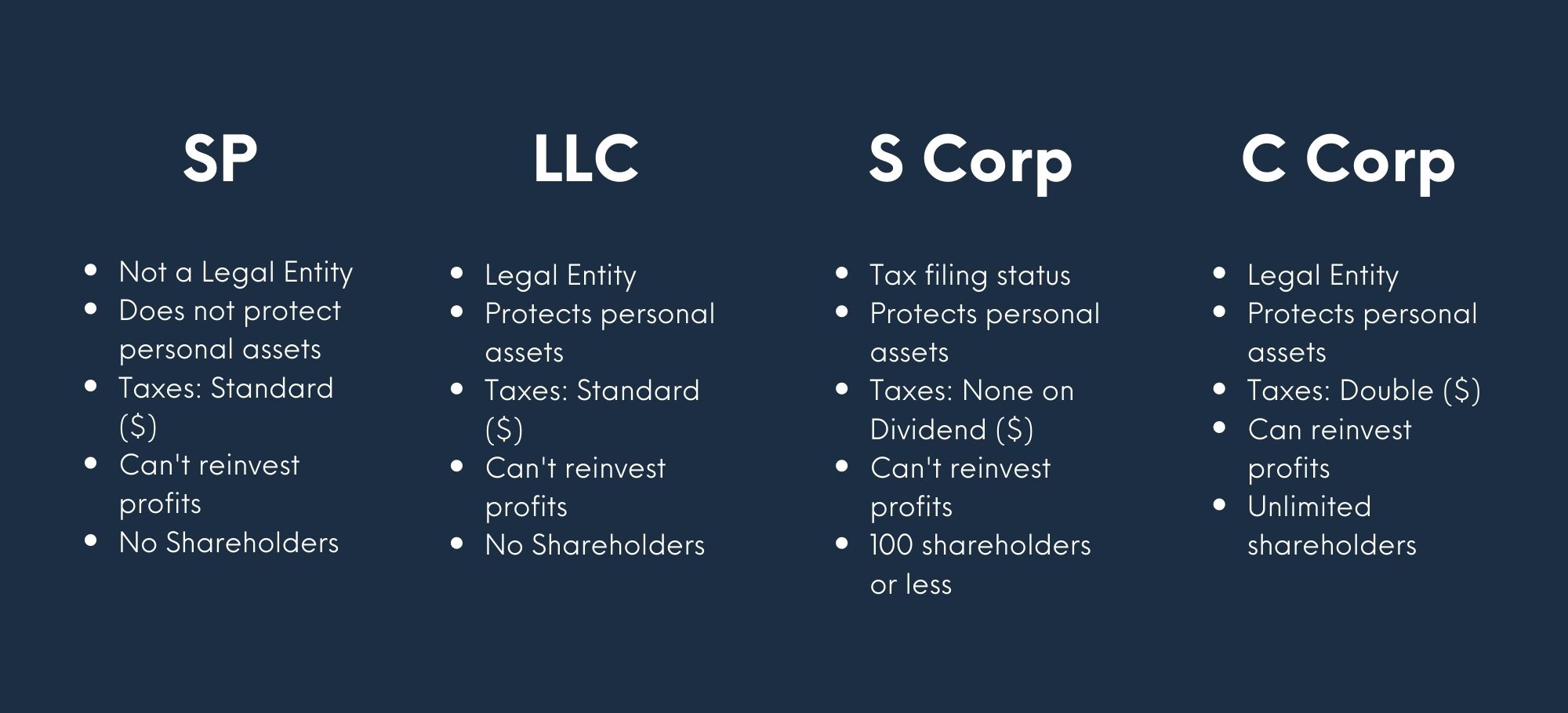If you’re ready to start your own business but aren’t sure where to begin, we’re breaking things down step by step to take you from an idea to a registered business here in Lakeland, Florida.
1. Identify a Problem or Need That Your Business Can Solve
Every business begins with an idea, a story or a passion. A successful business solves a problem or need for consumers. Start by learning more about the pain point your future customer is experiencing and then brainstorm ways that your company will solve that problem. Write out your ideas onto paper so you can continue to develop them into more concrete plans as you move forward.
2. Create a Business Plan
After drafting some ideas, a common next step could be creating a detailed business plan, however, not every entrepreneur would say this is the right path. Many companies that started without a formal business plan have become successful large corporations. However, if you’re looking to raise outside funding from investors, a business plan is necessary.
Your business plan should lay the foundation and create a roadmap for the next few years. This will help you set goals, determine potential roadblocks and how you will solve them, develop strategies and estimate your budget. If writing a long business plan intimidates you, use this one page plan by The 100 Startup to get you started.
Looking for some more information on what should be included in your business concept plan? Check out this template from the SBDC.
3. Do a Business Entity Search
Before moving forward, be sure that your business name is available by doing a business entity search. You can search registered Florida businesses on Sunbiz. Another factor to consider is similarity in name to other businesses: though your names may not be the exact same, if they are similar and you exist in the same market, you risk trademark infringement. Choosing a unique name in your market or field is conducive to growth and essential to scaling your business as well as establishing your brand identity.
4. Create a Legal Business Entity
Choosing which type of business entity to file is dependent on the nature and ownership of your business. The most common entities that small businesses file are Sole Proprietorships (SP) and Limited Liability Companies (LLC). The main difference between a SP and an LLC is personal liability. In a SP, the owner is responsible for the liabilities and debts of the business. This may put your personal assets at risk in the case of a lawsuit. As an LLC, the company itself is responsible for its liabilities and debts, providing the owner with limited liability.
Filing taxes as an S-Corp or forming C-Corp is a more common route to take for businesses with multiple owners. Like an LLC, forming a corporation separates your personal and business assets. The main differences between an LLC and a corporation are ownership, shareholders and taxation. LLCs who file taxes as S-Corps allow up to 100 shareholders who must be U.S. citizens and only have one level of taxation. C-Corps allow an unlimited amount of international shareholders and are subject to double taxation.
Cost of Registering Each Business Entity in the state of Florida
- Sole Proprietorship: $50 (This fee is for a fictitious name registration, also known as a DBA. This is only required if you are not doing business as your legal name.
- Limited Liability Company: $100+
- C-Corporation: $100+

5. Obtain an EIN
After legally registering and establishing your business entity, you’ll need to acquire an Employer Identification Number (EIN) from the IRS. This is essentially a social security number for your business: it separates your personal finances and income from your business. You can apply for an EIN online on the irs.gov website. This is necessary for opening a business bank account, applying for business licenses and filing tax returns.
6. Create a Business Account
In order to separate your personal finances from your business, create a bank account using your EIN. You can also open credit lines under your business to begin building credit. Read more about how to set up your business bank account on the Small Business Administration website.
7. Obtain Local Permits and Licensing
After establishing your business, obtain the local and state permits and licensing you will need to operate legally. Some business models are not required to obtain licensing; these requirements will vary business to business depending on number of employees, trade, specialty, and more. Learn more information on the City of Lakeland’s website.
8. Get Business Insurance
For some types of businesses, like food businesses or businesses with employees, insurance is required by law. For others, it is optional. Generally speaking, insurance is a great thing to have for liability purposes. It protects you, as the business owner, from paying out of pocket for property damage, injury and lawsuits from clients. Companies including Headley, Lock Insurance, Allstate, State Farm, and Hiscox all offer commercial line insurance policies, including general liability and workman’s compensation.
9. Keep your Business Compliant
Now that your business is established and up and running, you must maintain compliance with the U.S. federal, state and local laws regarding renewing your business license, taxes and insurance.
Find more information and resources on SunBiz.
10. Find Ways to Collaborate
Starting a business can also be lonely, so finding a way to get plugged into your community and network with like-minded people will help combat that. Being in a coworking space that fosters collaboration, creativity and productivity can be beneficial for your business and to propel you past the hurdles that come with being a small business owner.
Other Things to Keep In Mind
- Secure your website domain (Use sites like Google or GoDaddy)
- Create a business social media account and secure your handles
- Reach out to a mentor
- Consider online courses for areas you want to improve in through platforms such as Skillshare or Udemy.
If you have additional questions, be sure to leave them in the comments below!
This blog was written by the team at Catapult Lakeland, an entrepreneur center that exists to foster the growth of startups in Central Florida by providing education, community, resources, and space.

24. Branding is More Than Just The Logo
During our conversation, Tim Cox discusses how branding needs to be thoughtful to help businesses accomplish their objectives. A brand is who you are and branding is how you express who you are.

Launch Pitch Night Fall 2021
Missed out on Catapult’s 11th Launch Pitch Event? Let’s take a deeper dive into the night... Christiaan Abbott, the new Associate Director of Catapult, began the night giving history on the event. Over $300,000 has been awarded over the past 5 years. The Launch...

23. Is Your Brand Making the Right First Impression?
Stacye Jones joins the podcast to talk about the importance of understanding your target audience to have the best first impression.


0 Comments